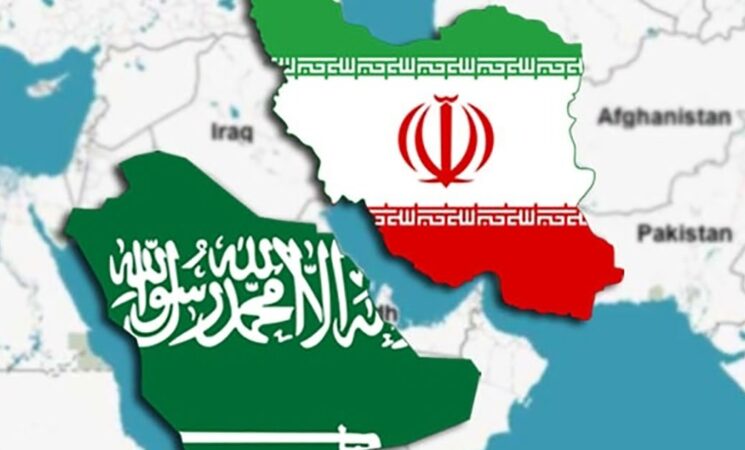18 February 2021, NIICE Commentary 6849
Mibin Mathew Mammen
The Iran Nuclear Deal or the Joint Comprehensive Plan of Action (JCPOA) was one of the major agreements towards regional stability. But there was no support for the agreement from the Gulf Cooperation Council (GCC) countries and also Israel which said in several statements that the agreement didn’t go far enough to contain the extremist activities of Iran in the region. The deal was signed into force in 2015 and the US administration of Donald Trump withdrew his consent to the deal in 2017 and re-imposed harsher sanctions on Iran which led to the re-configuration of the region. But the current Joe Biden administration is signaling an intent to re-negotiate the Iran nuclear deal with several pre-conditions. This is a good chance for the GCC countries especially the United Arab Emirates (UAE) to be one of the major actors in the negotiation for the new nuclear agreement towards Iran due to its record of support of International cooperation and also developmental peace, the good relations with Iran and also the United Arab Emirates secularist culture.
Firstly, the UAE has been a supporter of humanitarian cooperation and development by providing aid to several nations and also the use of Soft power strategy. This can be seen from the amount of foreign aid that was donated by the UAE and its humanitarian organizations such as Dubai Cares and Emirates Red Crescent. According to the UAE Ministry of Foreign Affairs and International Cooperation, the total aid provided by the UAE towards the least developing nations is USD 4 billion. This amount is one of the largest in the world and the UAE was acknowledged by the Organization for Economic Cooperation and Development several times and lastly in 2018 in its report. The UAE have also enshrined the policy of humanitarian diplomacy in its soft power strategy in September 2017.
Secondly, the UAE and Iran have a checkered history in their relations with each other. The UAE is one of the only states in the Middle East to have its embassy in Iran. Even though the recent events in the Middle East such as the UAE and Israel’s signing of the Abraham Accords has been criticized heavily by the Iranian Government with several statements from the Iranian President Hasan Rouhani and also the Foreign Minister Mohammed Javad Zarif. But this hasn’t affected the UAE and Iranian relations and the UAE’s intend to be a major factor in the negotiations can be one of the best ways to solve the issues between the UAE and Iran.
Thirdly, the UAE has been also known for its secularist approach with the conglomeration of communities from several religions peacefully in the country. The UAE has been known for its secular approach with various religious communities living in the country. According to the US Department of State report on International Religious Freedom in the UAE, “Of the total population (both citizen and noncitizen), the 2005 census, the most recent, found 76 percent to be Muslim, 9 percent Christian, and 15 percent from other religious groups comprising mainly Hindus and Buddhists, and also including Parsis, Baha’is, Druze, Sikhs, and Jews. Ahmadi Muslims, Ismaili Muslims, and Dawoodi Bohra Muslims together constitute less than 5 percent of the total population and are almost entirely noncitizens.”
This is one of the evidences of the multi-cultural profile of the UAE. According to the same data, UAE has one of the largest populations of Shia Muslims in the GCC with around 20 percent of the population of Muslims being Shias. This is even complemented by various laws and resolutions in the UAE which provide religious freedoms to non-Muslims to practice and profess their religion and prohibits the incitement of hate by Muslims to other non-Muslims. This has been one of the reasons why the UAE can be one of the major actors in the negotiations towards a new Iran Nuclear Deal.
Fourthly, the leaders of the UAE have been very keen on decreasing external interference from the region and the importance of incorporation of the regional actors towards the stabilization of the region which also connects with the statements by the Iranian leaders. His Highness Sheikh Abdullah bin Zayed Al Nahyan who is the Minister of Foreign Affairs and International Cooperation in his address to the United Nations General Assembly 75th Session has stated the importance of reducing external interferences in the regional affairs and has also called for a peaceful and comprehensive agreement to address the regional issue .This was supplemented by recent statements of Dr. Anwar Bin Mohammed Gargash the Minister of State for Foreign Affairs has called for the reduction of the external interferences in the regional affairs and also the greater involvement of the region is reaching a stable. This position of the United Arab Emirates is to an extent similar to the positions of the Iranian government which on several occasions has called for a reduction of external interference in the region.
The UAE can be one of the major actors in the re-negotiations for a new comprehensive Iranian nuclear deal due to the reasons stated above. This can be also helpful in the UAE’s bid towards the United Nations Security Council membership and in creating a stable Middle East for future generations.

